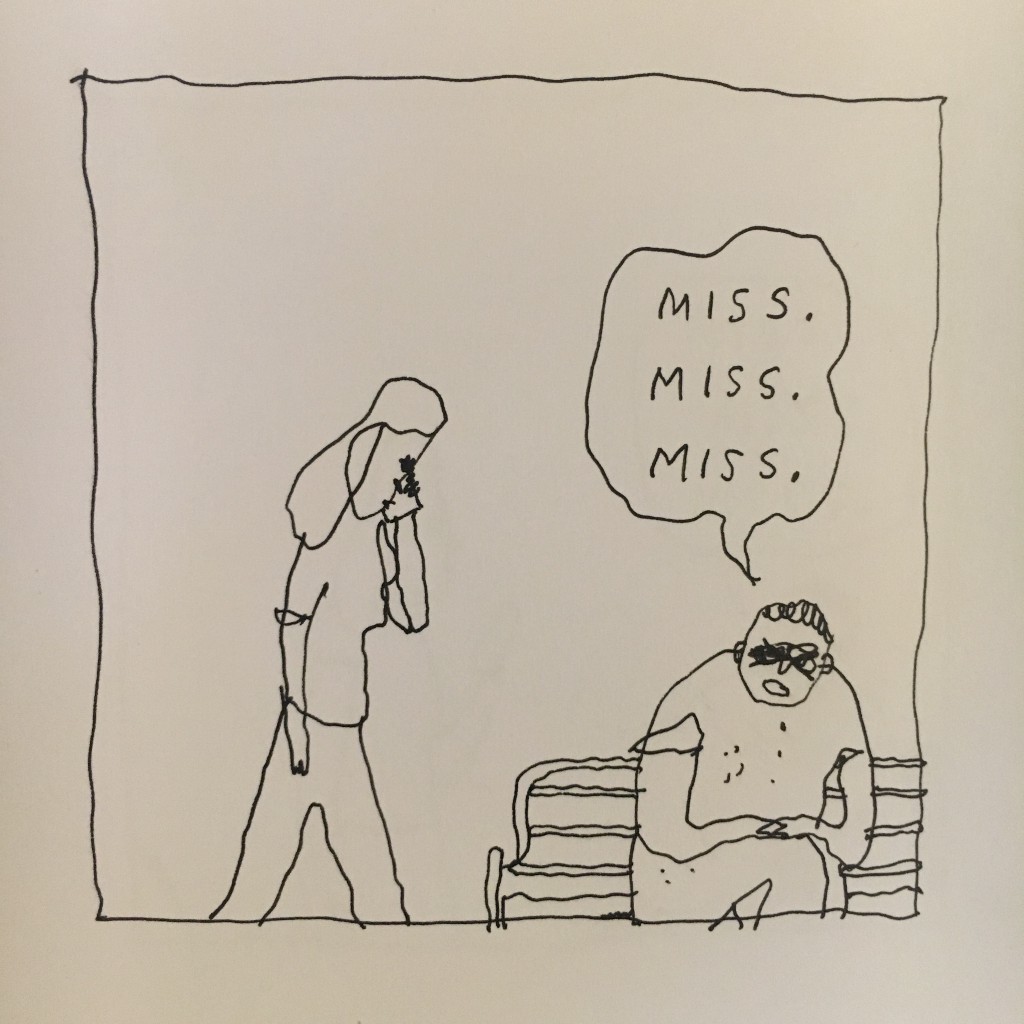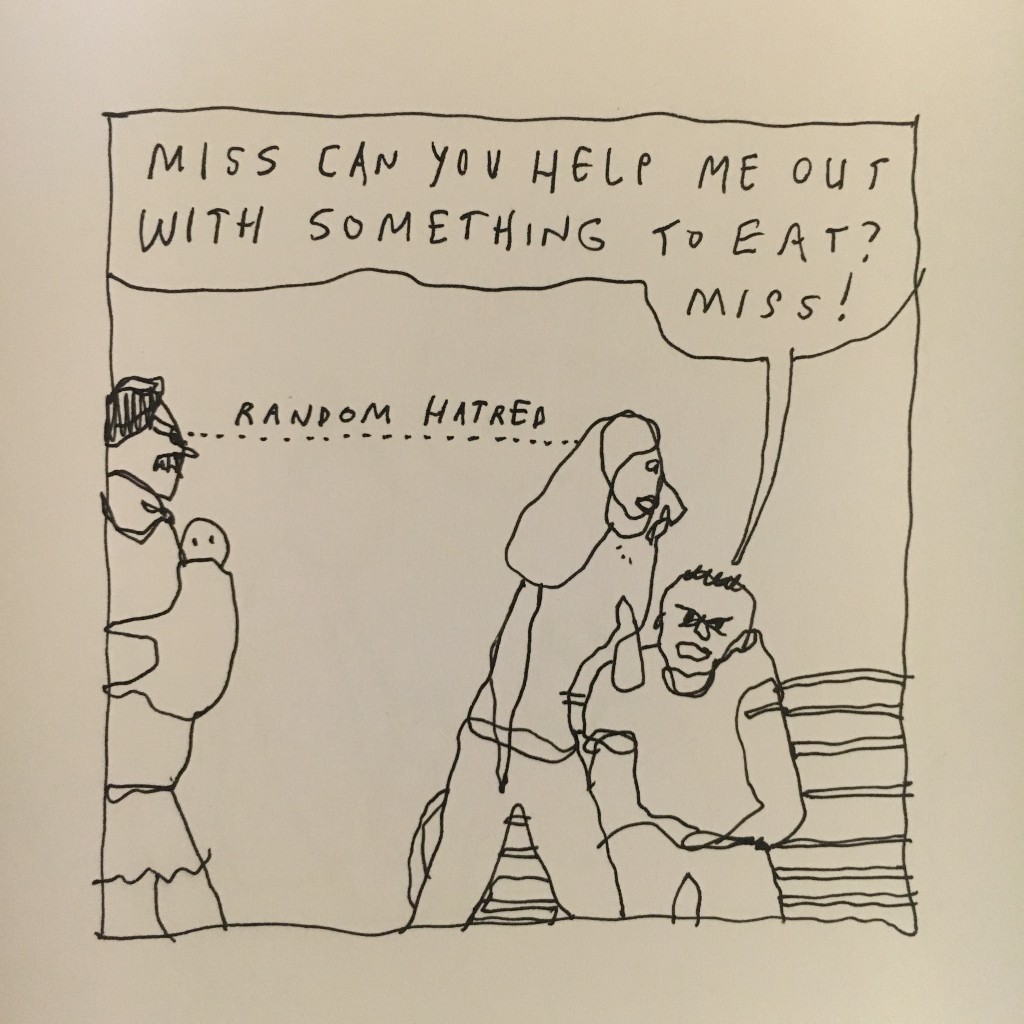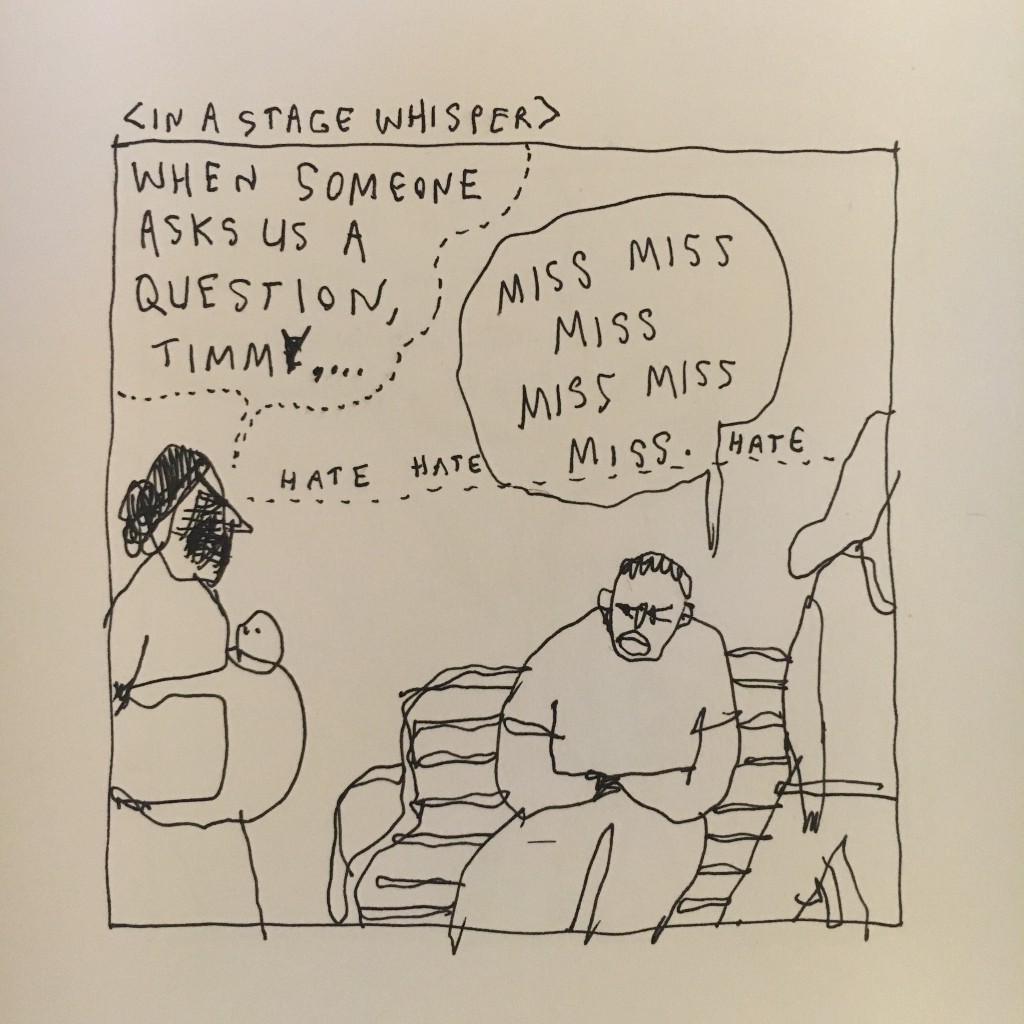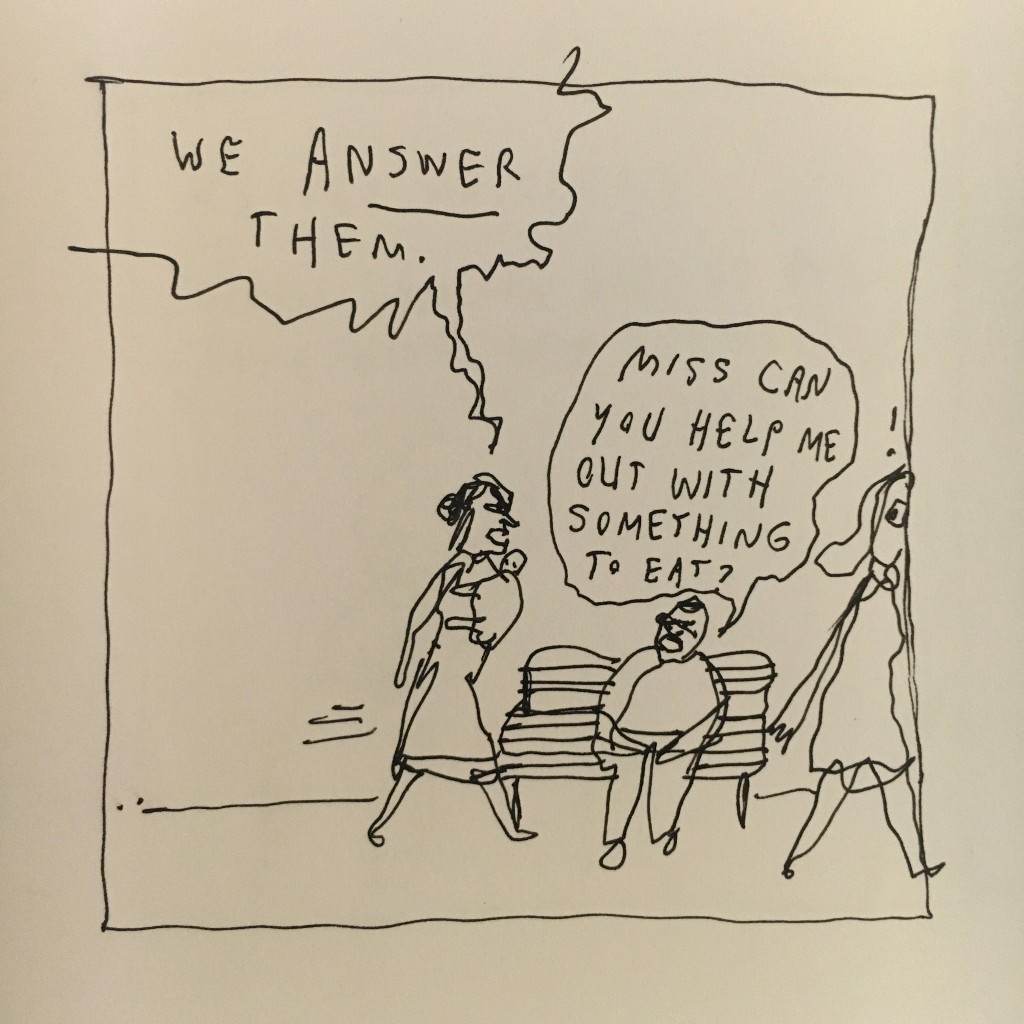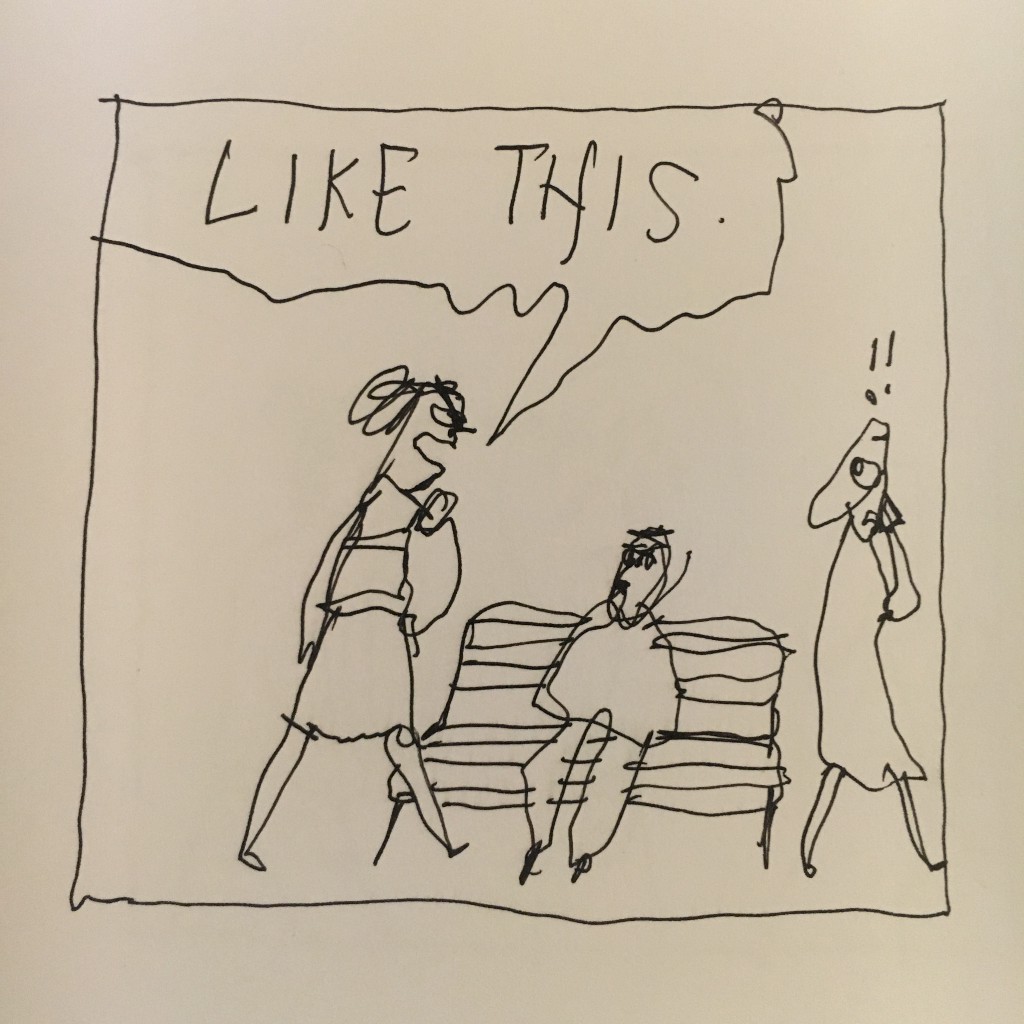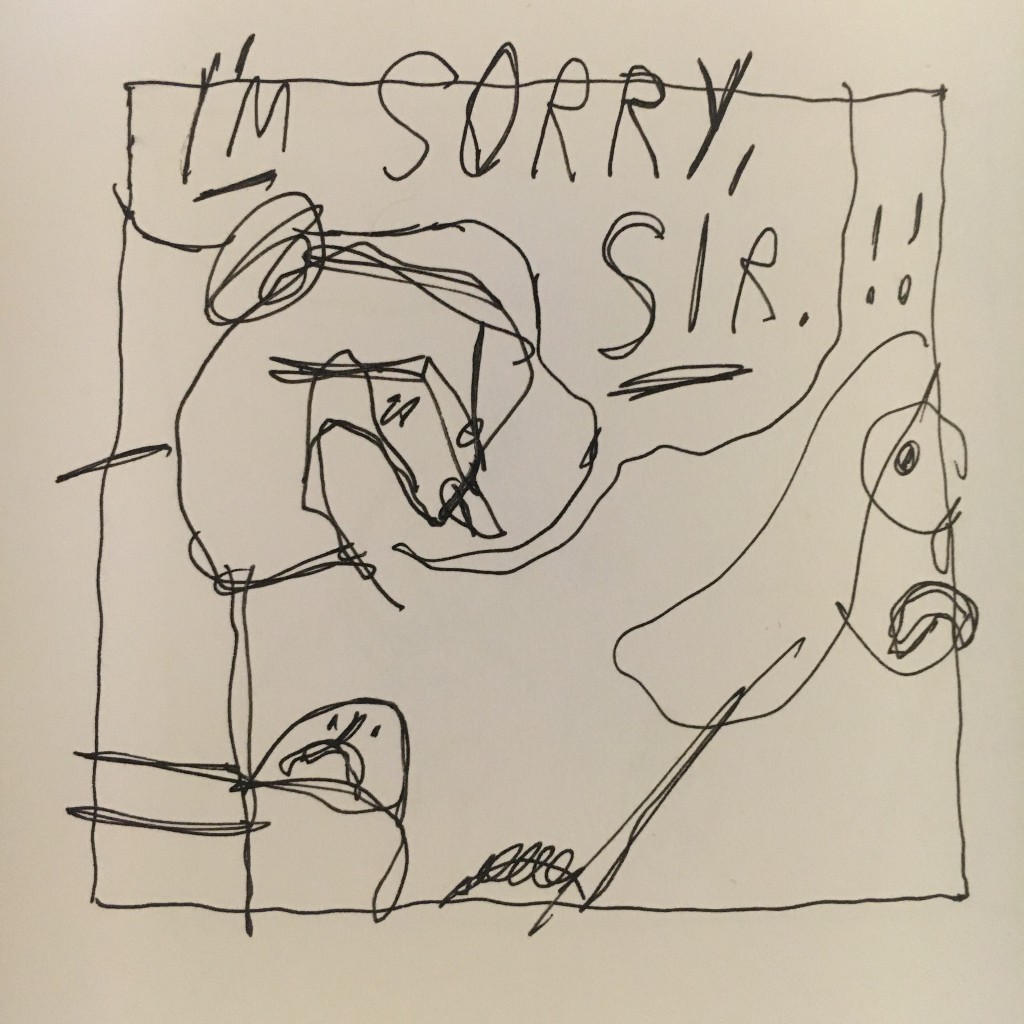Writing a Book is Like Riding a Bike: You Shouldn't Do Either
And other answers to unsolicited questions.

“I’m having a lot of trouble writing my book. What should I do?” — Writer’s Block Walter
I used to host author events at many bookstores in Boston. I’ve met hundreds of authors, some very famous, others only author-famous. If I learned anything from listening to all of them read from their books and answer questions from an audience it’s that there is no magic secret formula to writing books other than just typing and typing. Most audiences want to glean something about the writing process from these authors, as if that will give them some kind of blueprint into writing their own awesome book. But it doesn’t matter. Some people wrote at the crack of dawn, some wrote at night. Some did heroin. Some suffered over every individual line until they got it just right. Others just typed and let the editors sort it all out. There is no one way to write something other people would like to read. So what are you so worried about?
Lots of authors worry that if they don’t write ten books by the time they’re thirty they won’t win the Nobel Prize or something. But, really, one good book is pretty good. To Kill a Mockingbird. That’s a cool book. Wouldn’t you have wanted to write that and not Go Set a Watchman? I am trying to think of authors who have written more than one good book. Raymond Chandler? I’m sure there are some. Most authors write one good book and then a bunch of books that are only kind of good and remind you how much you enjoyed that one good book. This is why authors drink. Because no one has that many ideas to write books about. And being an author is a lonely thing. And writing is a miserable profession, in general. So much rejection. So few people actually read books. But, too late, you decided to become an author and now you’re stuck with it.
In my experience, most people just pretend to have read lots of books. They get like a hundred pages in and then there’s a football game on and hey where did that book go? Books are great for plane rides. I read The Godfather on a plane. That is an awesome book. Mario Puzo wrote like twenty more books. I did not like those. There was a football game on and hey where did that book go? Would I have liked The Godfather as much if there hadn’t been a movie of it? Maybe not. So the first thing you should do when writing a book is make sure they are going to make a movie out of it.
Some authors want to write bestsellers and some want to write deep and meaningful literature. I have different advice to those different kind of writers.

Bestseller Wannabes
I’d argue that writing page-turners is harder than writing deep and meaningful stuff. The pay-off for writing bestsellers is way better. Movies, fame, glory, money. That kind of stuff. But even Stephen King wants to be taken seriously. Why? I don’t know, that guy has written some awesome stuff. Who cares whether literary critics like what you do or not? Nobody likes literary critics all that much. They’re just failed writers who are only happy when they’re taking a hammer to other people’s work. Sometimes they do write amusing take-downs of other writers, but no one really reads literary criticism. If you’re worried about what people will think of you, if you worry about your literary legacy, just do what James Patterson did. He wrote a bunch of books and made a lot of money and then gave some of that money to booksellers and independent bookstores. I think you should buy all of that guy’s books and read them a million times.
How do you write a bestseller? It’s easy. Read a bunch of bestsellers and steal most of their good ideas. Unreliable female narrators are very hot right now thanks to Gone Girl and The Girl on a Train. I read Gone Girl in like a week. I hated both main characters and hoped something bad would happen to them both. I liked the Ben Affleck movie even better because I like watching Ben Affleck suffer, I’m more of a Matt Damon guy. The Girl on a Train I have had trouble getting through, but maybe I will give it another chance. So far I don’t like the girl or the train.
But if you could get your book to pop up on amazon on the “Customer Who Bought This Item Also Bought” bar that shows up on the middle of their page, you’re golden. It doesn’t even have to be that great. I can’t write believable female characters because women in general are much smarter than me. What the worst that would happen if you wrote The Girl Who Was Gone on the Train? Some kind of murder happens on a train with a girl who you can’t really believe because she’s always lying. Maybe make it a plane. Murders on planes are more fun.
Being derivative is your best friend when you’re writing bestsellers. The more it reminds readers of something they’ve already read the better. The better the chance they will buy your next book. And watch your HBO series. And marry you and stuff. Writers of bestsellers are always under a huge amount of pressure to write more, write faster, come up with even better ideas. But the old ideas are the best. My radio co-host Bronwyn turned me onto Plotto. All you have to do is flip around and you can create your very own plot in seconds. It’s coming out in paperback in November. Just in time for Write a Novel Quickly Month, in which all of your friends try to crank out a novel.
The other key to writing bestsellers is to have all kinds of plot twists that make people so crazy they just have to keep reading, getting no sleep, until your book is finished. Every chapter should end like this, someone’s head suddenly falls off. Or instead of their lover being in bed when they come back from the bathroom it’s a sheep. It doesn’t matter how wildly improbable these twists are. People will have to keep reading. Because a sheep? If you can follow these easy directions say hi to Ben Affleck for me.
Literary GeniusType Writers
No wonder you’re having trouble with your book. It’s supposed to be filled with all beauty and knowledge in the universe. Are you filled with all beauty and knowledge in the universe? Then what do you need my advice for? Most deep books are just about adultery. I don’t know why. So go have an affair, maybe that will make you feel better.
Jim Behrle lives in Jersey City, NJ and works at a bookstore.
The Funny Pit
Yes and we want more of your cash.
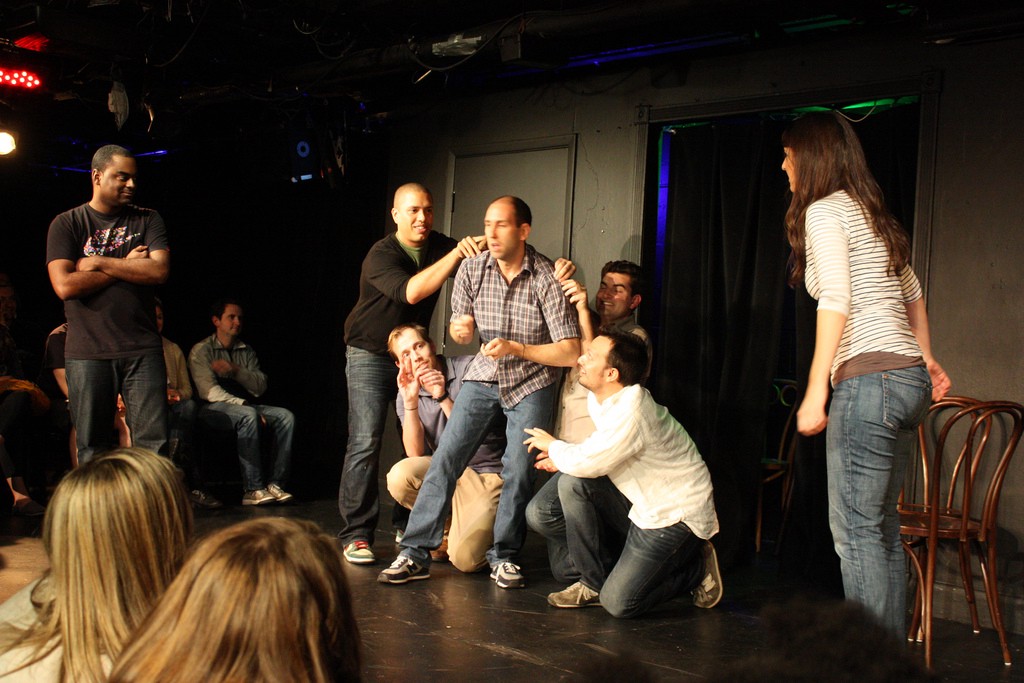
So what do you call something that isn’t a exactly Ponzi scheme or a pyramid scheme or a multi-level marketing strategy or a “personal development” program but has elements of all those things? There really ought to be a word. Why am I asking? Oh, no reason. Anyway, if you’re looking for something to read this morning, the current New Yorker has a piece on the Upright Citizens Brigade by Emma Allen.
How the Upright Citizens Brigade Improvised a Comedy Empire
For further information you might enjoy this piece by Brendan O’Connor on the same subject from last year.
Anyway, do enjoy those stories. I will, completely unrelatedly, continue trying to think of a description for the kind of organization I wondered about above, if you have any ideas of your own please feel free to contribute.
Lowly, "Deer Eyes"
It’s the week you watch your summer die.

This is it. Your summer is almost over and you fucked it up again just like you do every year and right now you are frantically planning how to salvage it all in the seven days that remain. We both know how that’s going to work out for you, but I guess I have to admire your ability to convince yourself that you might still make something happen. You’re okay in my book, kid, no matter what everyone else says about you. Good luck.
Hey, remember Lowly? They were responsible for the song I listened to more than any other in 2015, and the rest of the tracks on their debut EP were also quite good. Well, they’ve got a whole album coming out next year. Here’s something from it. Enjoy.
New York City, August 25, 2016

★★ The sweat-soaked pajama shirt, flung off in defeat in the middle of the night, hit the floor with an audibly damp sound. The repaired air conditioner was not so repaired after all; the bed had to be shoved aside again for another try. The faded moon matched the thin clouds high overhead. Up to midday it was still possible, out of the sun, to believe that the heat was less than absolute. A man ate something while leaning against the blank side wall of the Apple Store, a few feet within the safety of the shade. The uptown 1 car was uncooled but full nevertheless. People boarded with dismay but didn’t bother fleeing. Missing a walk signal out in the open felt like a devastating setback.
Rex The Dog, "Teufelsberg"
It’s Kompakt Total time.
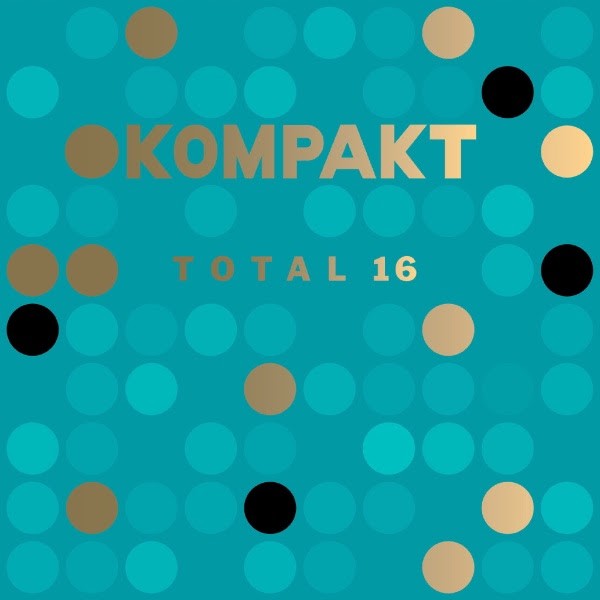
Kompakt’s Total compilation is a highlight of any year, and the 2016 edition is available now. There are some great tracks from Coma, Jürgen Paape, The Field (a Kaitlyn Aurelia Smith remix!) and this, from Rex the Dog. Enjoy.
Go To School And Join The Circus
From big tops to aerial silks—how is professional circus school changing the industry

Moffat Street, on the eastern border of Brooklyn’s Bushwick neighborhood, is framed by a long parallel of tall, square warehouses. Some of the buildings have been repurposed into housing; some are abandoned; some still have industrial uses, or serve are storage spaces. Save for an adjacent metal bike rack spelling out the word “CREATIVE,” it would be entirely possible to ignore 350 Moffat, a former metal foundry now home to a circus school called The Muse.
From 2010 through the end of 2014, The Muse was located on the Williamsburg waterfront, at Kent and South 1st Streets, but was eventually forced out of its space by the landlord, to make way for the Vice Media neighborhood takeover. The space is is 7,000 square feet — seven times the size of The Muse’s previous location — and most of the space is unobstructed by walls or dividers. Hanging from a forty-foot ceiling, on any given day, is a combination of circus contraptions: lyra hoops, ropes, trapezes, a harness bungee, a Chinese pole, aerial straps, and a hammock.
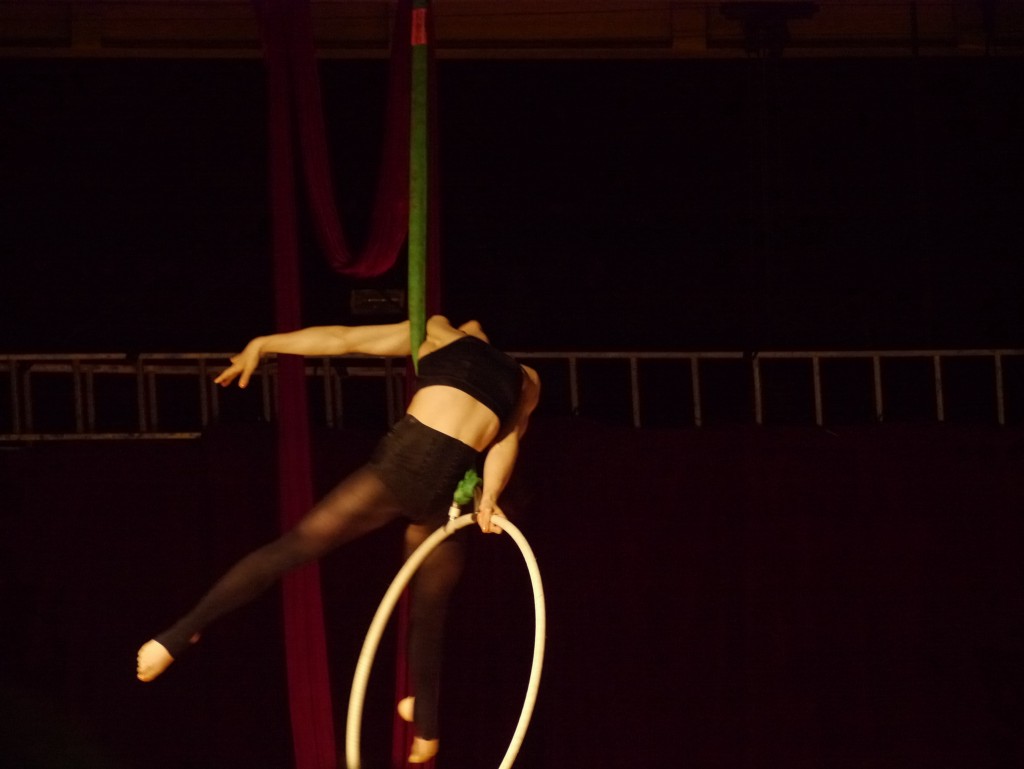
I visited on a Tuesday in August, around 5p.m., and most of the patrons were working out on their own, or with a partner. The Muse advertises itself as “Home of the Working Professional,” which is not a jab at the nine-to-five workforce, but rather, an invitation for New York City’s community of professional circus artists. Angela Butch, The Muse’s founder and director, said, “During the day we really cater to the working professionals and the circus community… And then during the evening, you’ll see some of those same professionals teaching our classes, which are designed for recreation and fitness.” The clientele is about a fifty/fifty split.
The Muse is part of a growing trend of institutions providing a circus education, and in most ways, it is a very typical American circus school. Within the circus arts community, there has been a rise in schools targeting professionals as well as a proliferation of educational opportunities for amateurs, intermediaries, and the curious. In the past few years, New York City alone has seen the emergence of several schools, including Aerial Arts NYC, Circus Warehouse, Urban Circus, The Muse, and Streb.

Historically, there were two pathways to joining the circus. You were either born into the circus, or you could run away with it. And the mechanics of running away with the circus were never romantic. Shoveling manure, manning a concession stand, or other mundane and often dangerous tasks — such as rigging or dealing with animals — were the primary entry into the show. From there, you had to convince someone to teach you a trick or help you cultivate a talent, but by and large, circus skills were largely procured through generational transmission for almost two hundred years.
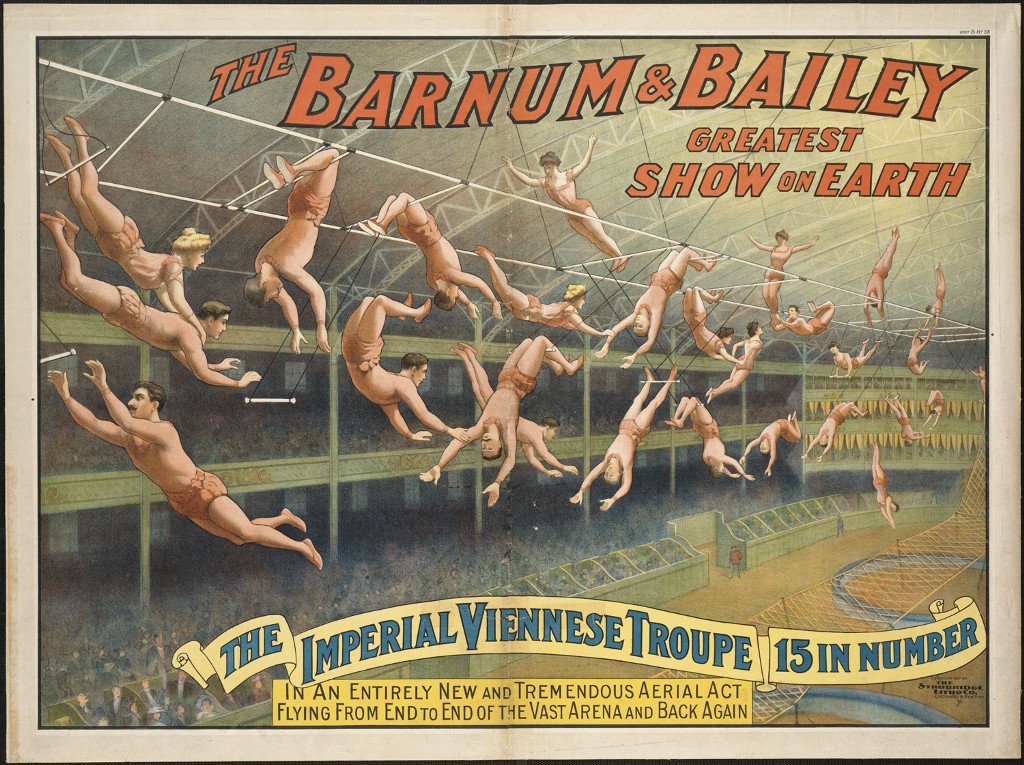
But in 1968, Ringling Bros. began to eschew this tradition of generational transmission. Although their troupe was a highly celebrated act, Ringling’s clowns were getting old, and could no longer perform the stunts that were requisite for entertaining the masses. So they decided to educate a new generation of clowns, and opened the first clown school, “Ringling Bros. Clown College.”
If you weren’t born into the circus, clown college “was one of the first ways to get involved, and to learn the different circus skills,” said Rodney Huey, a circus historian, a circus public relations professional, and a professor of cultural studies at Lynchburg College. And it wasn’t just clowning — they taught “wire walk, low wire walk, unicycle, and juggling.” Ringling Bros. Clown College closed in 1997, but its existence established the idea that clowning and circus are art forms which can be studied, emulated, practiced, and refined.

Although the circus has evolved away from Ringling Bros.’ animals and carnival music, towards the character-driven, theatrical, and narrative approach popularized by Cirque du Soleil, circus schools continue to be a feeder for professional circuses. “Any good school wants their students to be employed upon graduation,” said Stacy Clark, a talent scout and the head of acrobatic casting for Cirque du Soleil. “It’s in their best interest to have a positive relationship with us, as much as we want a positive relationship with them.” She continued, “We will have pre-identified some students who might be a great fit for the coming needs of Cirque du Soleil, and once they officially graduate, and they are on the market, then we will approach them as independent professional artists.”
The most prominent example of this relationship is Montreal’s École nationale de cirque (ENC), one of the oldest circus schools in North America. ENC is located across the street from Cirque du Soleil’s corporate headquarters, and, within the circus arts community, has the reputation of being a feeder school for Cirque du Soleil. Clark confirmed this, saying, “ENC tends to produce exactly the type of artists that we’re looking for, given the nature of our shows, and the demands that we have at Cirque du Soleil. So it’s simply a good fit.”
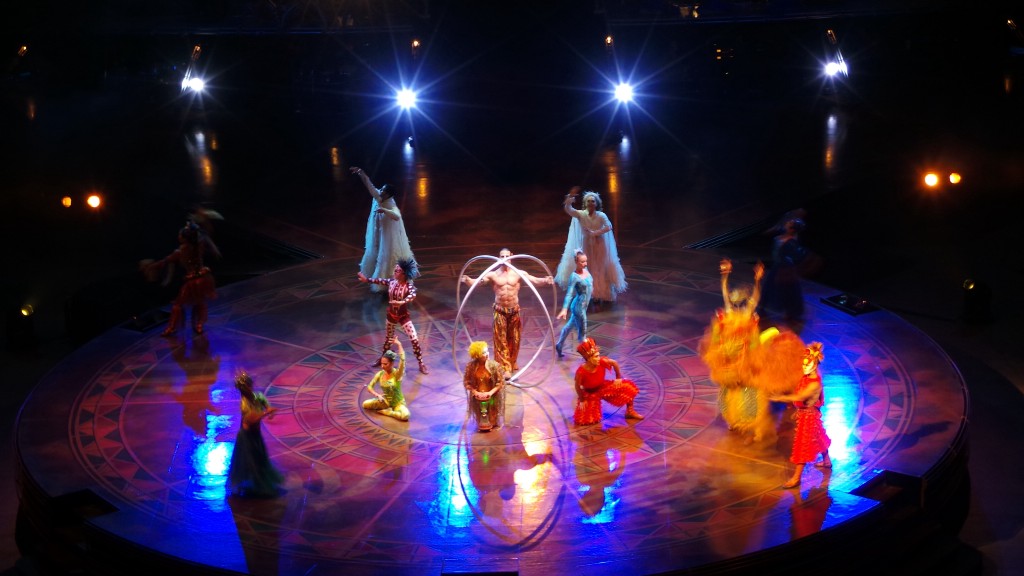
One of the most tangible services a circus school can provide is assistance in the creation of an act. Kyle Driggs, a graduate of ENC, stressed the importance of circus school in the formation of his act, which combines movements based in modern dance with a juggling routine. “I started juggling these white rings and an umbrella three months before coming to ENC. And so I came into circus school saying, ‘This is what I want to do.’ Luckily, the school was behind that.” Kyle’s talents are now featured in the opening routine at Cirque du Soleil’s Paramour show in New York City.
Of the twenty circus performers in Paramour, eight of them went through ENC, one went to a circus school in China, and the rest came from gymnastics or sports backgrounds. This is fairly representative of how many Cirque du Soleil performers come from circus school; Clark added, “I would expect that number to continue to grow.” Even smaller, newer schools like The Muse supply the circus industry with performers. In addition to bookings for parties, Angela also does scouting and castings for events that desire a circus aspect — she said it’s one of the main reasons professionals come and train at The Muse on a daily basis.

There is no prerequisite body type for joining the circus; different people are suitable for different positions. Jugglers, acrobats, tumblers, trapezists, clowns, rope walkers, and aerialists are all part of any good circus. And although prior knowledge of dance or acrobatics is helpful, most circus professionals I spoke with stressed that the main barrier to becoming a professional circus performer is the requisite time commitment. Even so, circus skills are not easily acquired.
In the two hundred year history of the circus, there has never been an easier time to join, and there has never been a time where circus skills are in such high demand. This is not to say that the circus industry is not competitive, or that learning circus is easy, but a full-time career in contemporary circus is doable. Part of the growing demand for circus performers stems from a growing demand for circus to be integrated with other art forms, and this increased demand has largely fueled the continuing proliferation of circus schools.
In the past decade, commercials, Superbowl Halftime shows, music videos, musical theater, and live concerts have all started to incorporate aspects of circus performance. Julia Langenberg was performing full-time as an aerialist at SeaWorld before heading to the New England Center for Circus Arts (NECCA), from which she graduated in 2013. She told me, “When I started ten years ago, there wasn’t as much knowledge as there is now about proper training and progressive skill building. Ten years ago, employers were just looking for gymnasts or dancers that they could train without any previous circus knowledge…nobody really knew what they were doing, so to be able to go to NECCA, and have that foundational skill level, that I had initially missed, was really important.”
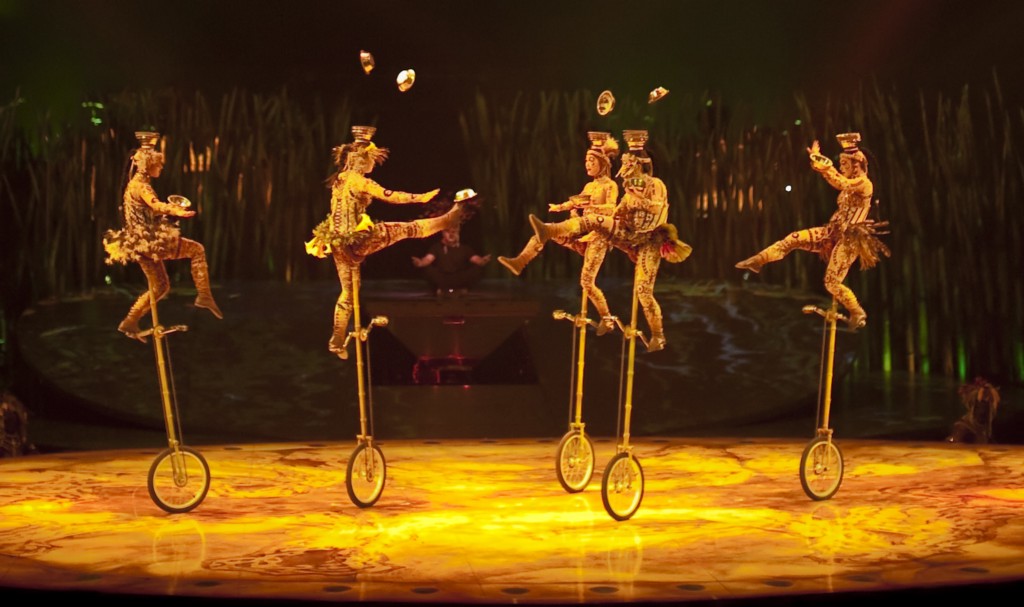
In addition to teaching the requisite skills for integrating circus with other forms of art and entertainment, circus schools provide qualifications that can be used to verify a potential candidate’s skill level. Langenberg said that it used to be possible to gain employment in a circus-type role at a place like SeaWorld with only a background in acrobatics or gymnastics. Now, either circus school or a long career in the circus industry is a prerequisite for those types of jobs.
One of the ideas that circus school has embedded in the circus industry is that the circus is an art form on the same level as ballet, opera, or theater. In the late 1990s, the United Kingdom and Australia began developing Bachelors of Circus Arts programs, with degrees are awarded by public universities. A bachelor’s degree in circus arts might sound ridiculous, but is it any crazier than any other bachelors or masters degree in the arts? Circus schools offer students the ability to train and learn circus arts in a controlled environment, with a literal and figurative safety net. We have BAs, BFAs, MAs, and MFAs for almost every other imaginable artistic practice, and there is perhaps no other art form that puts your life in imminent danger in the way that the circus does. I asked Stacy Clark from Cirque du Soleil, jokingly, if we would see an MFA in Circus Arts in the next few years, and she replied, in earnest, “I’m pretty sure that will be the case.”
Jack Lowery is a retired dog walker.
We Asked Three Animal Psychics What Harambe Is Doing Now
He’s Fine and He Thinks You’re Dumb
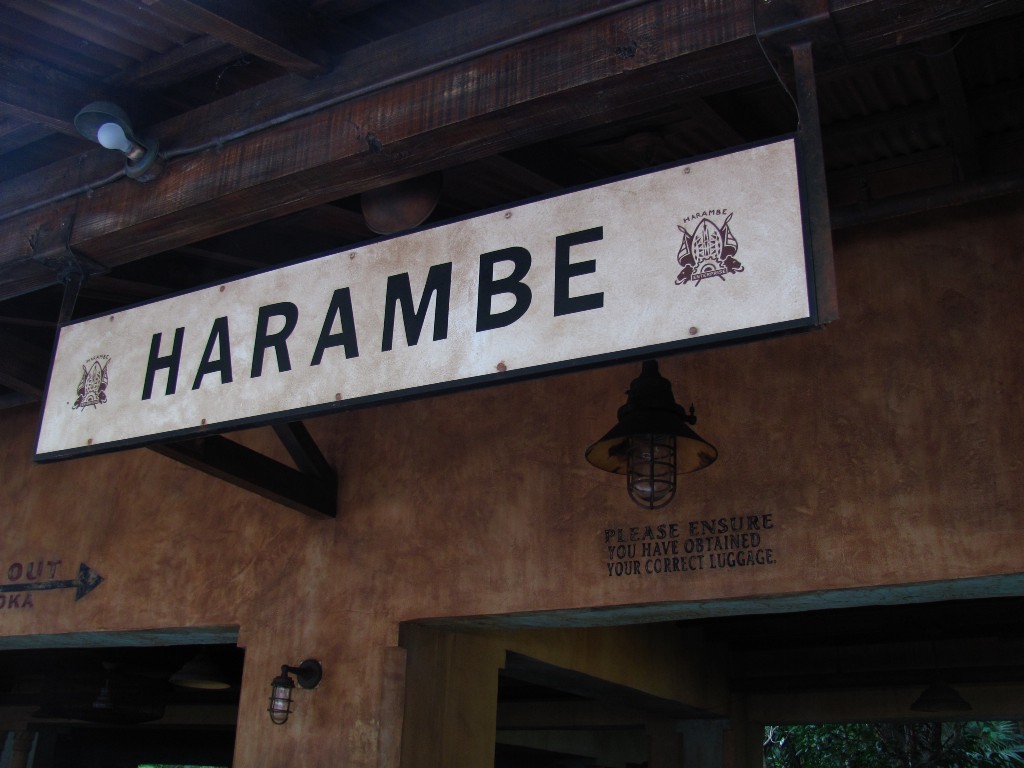
On May 28th, 2016, a silverback gorilla named Harambe was shot and killed at the Cincinnati Zoo after a four-year-old boy fell into his enclosure. Animal rights activists immediately cried for justice and the internet turned him into wildly popular meme. “It becomes a farcical way to skewer social media activism rather than actually going after social media advocacy,” Ryan Milner, an assistant professor at the College of Charleston, told the New York Times. “It’s a little bit of a subtle shade whether it’s intentional or not.” Milner is also the author of the forthcoming book, The World Made Meme.
Three months later the memes show no signs of abating, so I called a bunch of animal psychics to check in with Harambe. One told me Harambe didn’t want to talk to me, two pulled out after they looked at The Awl (“What kind of website IS this??), and one of them turned out to be a run-of-the-mill psychic who could not talk to gorillas. She did tell me my love chakra was blocked, though.

Linda Clayton, of animalstalk2me.wordpress.com
I get brief…they’re not sentences, from the animals or the souls, I get little bursts of words. So the first thing that I heard, well actually it was an image — him being still strong and beating his chest. He brings…oh! He is not upset because he feels like this highlights the gorilla’s plight. He’s happier on the other side. You — I think you asked if he’s alright? I mean, every living thing is happier on the other side. It’s like hell on this side and fabulous over there. It is! So, yes he forgives us. He thinks we’re not that smart. They — all animals think we’re not that smart. Um…he does not care about [his newfound] celebrity, he cares about all apes. He doesn’t care for himself, he’s like a representative. Um, and here’s the thing that’s controversial…he said ‘I was never gonna hurt him.’ But [Harambe’s] done, he’s happy, he’s out of here.
Kristina Wium, Certified equine massage therapy & animal communication
So, his big message that he’s sharing to me today is compassion. And in that there is nothing to forgive, he’s getting to that sort of question. Forgiveness is not necessary. And compassion…that’s — how do I explain this — that’s the space he’s occupying and sort of the energy that he’s holding for all of this. And because he’s aware — he’s still very much observing what’s happening because there’s so much attention to this still going on. Normally from my experience he would’ve moved on, would’ve left the body and sort of been clear to go where he needs to go. But because so much is still going on he’s still paying very much attention, so that’s sort of an answer to that other question — how does he feel about this internet celebrity. So when I tune in with him, as with a lot of animals, I can connect with the individual but a lot of times because we’re — his energy’s also connected with the gorillas in general? So like, with dogs you might have a golden retriever dog but you also have the essence or spirit of golden retrievers in general to which many people would give very common attributes. And with him there’s this collective consciousness around the gorilla, so he’s helping to hopefully move this attention across the world, hoping to bring compassion energy to this situation through the collective consciousness of all gorilla. So that’s what he’s doing, that’s how and what he’s doing right now.
Shirley Scott, Animal Communicator and Psychic
Okay um, I got in touch with him while this whole thing was going on and um when we cross to the other side? We all forgive. Because we see what the lessons are and you know, what we have to do. When he was in his body he was doing what his DNA told him to do and that’s where humans sometimes don’t understand. You know, he was protecting himself and his little tribe there. From something that he did not know what was gonna happen because kids’ energy is really wild and out of control anyway and most animals don’t like it. And that’s why dogs bite kids sometimes too, because they’re you know they’re just kind of out of control. So yeah, he does forgive and he sees the celebrity or the stories about him as learning lessons for humans if they will accept it that way.
Harambe is a saint, please leave him alone now.
Rebecca McCarthy is an Awl intern and a bookseller.
Washington Square Park

We’d found a bench in the shade, my friend K and I, and he smoked as we talked. Our conversation topic was the same it’s been for twelve years: addiction, sexual attraction and the psychoanalytical makeup of our mutual friends. There was a time when this conversation had a performative whiff to it, when we were young and stupid enough to have conflated all those things into a glamorous gloss, and our chief mode was envy. We were older now: married, divorced, in AA, learning to meditate.
You approached swiftly, like people do when they’re assured that this will be an easy exchange between strangers and everyone knows the protocol. K was already reaching for his cigarettes. This is something I envy in smokers, the fellowship of it. The way two people who’ve never met can seek and grant the small generosity of a cigarette or a light. But a person could not, for example, approach a stranger eating a bag of Reese’s Pieces and ask to bum one. We might share a deep fellowship, a love of Reese’s Pieces, a dependence on them. But if I were to ask her for one she’d be aghast. She might even flinch. I can hear it: an, “uh… excuse me?” in a tone that made clear the person who needed excusing was me, not her.
“Can I ask you something?” you said to us and naturally neither of us flinched, but instead said ‘sure!’ K had just been talking about a guy we both knew who presented himself as a highly attractive man, even though we ferociously assured each other that he was totally not. K had done his voice, the louche, “Yeah, hi…” and had mimicked the slight head roll backwards he did when he extended his hand, as if he were James Franco in a Gucci ad. You seemed like the sort of guy who played or had played a lot of video games, but was also able to joke winningly about playing or having played a lot of video games. You looked to be in your late thirties, that age when having come to an acceptance of your ginger stubble and your slight belly was so complete and so palpable in its ease and humility, that it actually cast you as attractive. In the movie, you’d be the best friend of Kristin Wiig who’d at last realize that kindness trumped Jon Hamm’s facial features and that her soulmate has been there all along.
“Did a bird just shit on my back?” you said, and turned round, in a slight crouch, to present your back and its black t shirt to us. Not a guano smirch in sight. This, for some reason, struck me as exultant, miraculous. My God, we were so happy to tell you that you were all good. You thanked us and went on your way and we watched you go.
“‘Did a bird just shit on my back?’” K echoed to himself, amused, and this time there was affection in his voice, doing your voice.
Chromatics, "Dear Tommy"
You thought Frank Ocean was a tease?
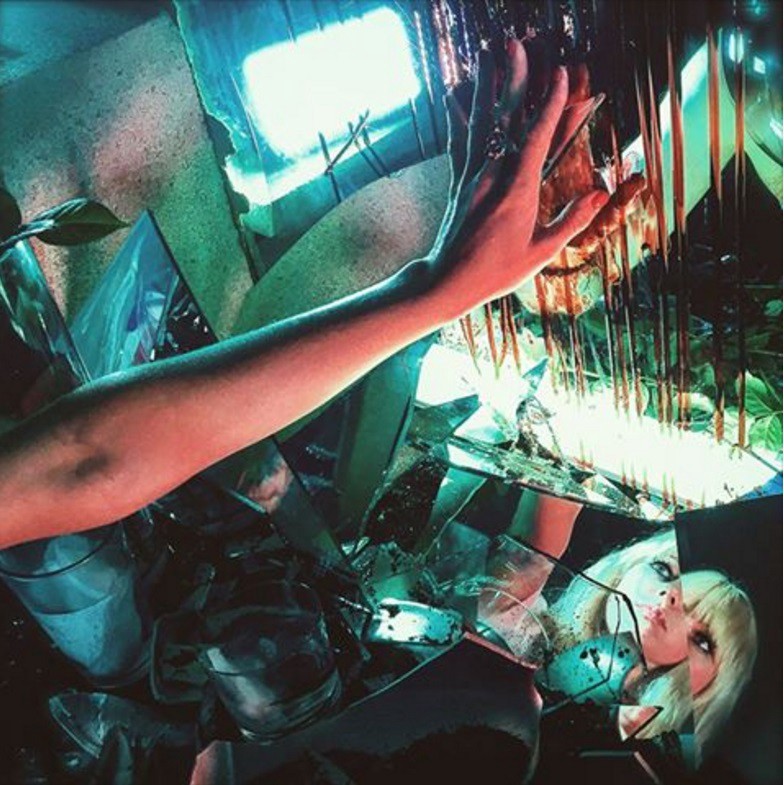
The long-awaited next Chromatics album keeps emerging in dribs and drabs — eventually you might be able to assemble it on your own — but with the release of this video and a full track list it almost feels as if we are so much closer to an official issue. I have so little left in my life, please just let me have this, okay? Anyway, please enjoy.

